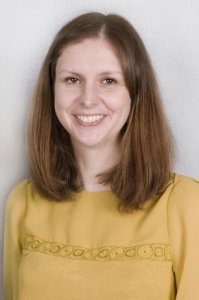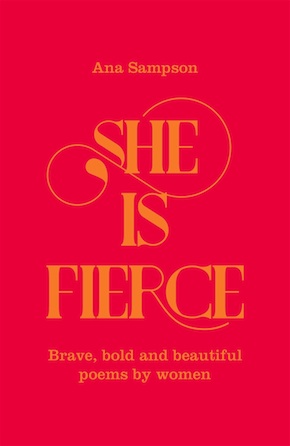Phenomenal women
by Ana SampsonIn Summer 2017, I decided I wanted to read an anthology of poetry by women that would cover writers from the ancient world to today. I had edited several anthologies myself, but the remit had always been to include the ‘greatest hits’. I had become uncomfortably aware how few female poets featured in most general anthologies. In one, to my horror, I counted more poems by men called William than by women. I was reading some wonderful contemporary poetry, but I also wanted to read women’s work from previous centuries. There were specialised and academic titles – Victorian women’s poetry, Irish women’s poetry, women’s war poetry – but not the broad and friendly volume I was looking for. So I set about trying to create one.
I actually began work before anyone had consented to publish the book – a risky decision as a freelancer, but one I couldn’t resist, partly as I was so sure people would want to read it and partly because once the idea had occurred to me there was so much inviting reading to do. Thank goodness for Gaby Morgan, poetry publisher extraordinaire at Macmillan, who agreed to launch the book and ensure I hadn’t simply broadened my own reading habits and emptied my bank account in the process.
It started – of course – with reading.
There were names I knew I had to include: the Brontë sisters, Sylvia Plath, Dorothy Parker, Maya Angelou, Christina Rossetti, Emily Dickinson. I read them – again or for the first time – with a critical eye. Were their big numbers really all that? Often: yes. When I revisited Elizabeth Barrett Browning’s ‘Sonnet 43’ (How do I love thee? Let me count the ways…) I found it deeply powerful and passionate despite its familiarity, so it went in. Sometimes, though, I unearthed something of theirs that was new to me, and I hoped would be to readers, too. Jenny Joseph beyond her much-anthologised ‘Warning’ was something of a revelation to me – ‘The Sun Has Burst The Sky’, which I have also included, is a sharp yell of infatuated joy and I had several of her other poems on the longlist.
My favourite finds included American anthologies, volumes by Katherine Mansfield, Ursula Bethell and Lola Ridge, and too many collections by contemporary poets to list.”
Once I had dealt with my hit list of names, I started reading further afield. I haunted libraries, from the small but perfectly formed library in my home village to the brilliant National Poetry Library at the Southbank Centre (joining is free, and they have a great e-lending service if you can’t get there in person, fantastic staff and a hand-operated stacks system you can – quietly – re-enact the garbage-crusher scene from Star Wars in. Just me? Surely not…) I bought second-hand books in shops and online, gratefully accepted bags of delights from my editor, devoured poetry publications and spent hours online. I lapped up recommendations. Some of my favourite finds included two American anthologies: A Book of Women Poets from Antiquity to Now edited by Aliki and Willis Barnstone (1980) and the feminist classic No More Masks! An Anthology of Poems by Women edited by Florence Howe and Ellen Bass (1973), volumes by Katherine Mansfield, Ursula Bethell and Lola Ridge, and too many collections by contemporary poets to list here.
I must have read thousands of new poems, Post-it Noting everything that intrigued me. The kitchen table and living room floor disappeared under the stacks of paper and books, and we needed several new bookshelves. My apologetic intimacy with the postman deepened. I had at this point gathered more than enough exceptional poems to fill several books and, with a tremendous effort, I slowed my reading. (I couldn’t stop. So there were last-minute additions, and poems I’ve read since that I would have loved to include. If the reading public is ready for another few volumes, there is so much wonderful work I’m aching to share…!)
I’m enormously grateful for technological advances that allowed me to avoid carrying a houseful of books to the nearest photocopier. An app called Tiny Scanner turns pages into printable PDFs when you photograph them on your phone. My long-suffering husband – not a poetry lover – baffled his work colleagues by printing out stacks of poems for me at his office, since our rudimentary printer couldn’t cope. I turned my houseful of Post-it Noted books into towering stacks of paper, and closeted myself with them.
At first, I had envisaged a chronological overview of women’s poetry from the ancient world to the present day. It was hard to know, though, when to move from one period to the next since many poets’ work spanned eras, and the explosion of female voices from the nineteenth century onwards would lead to those chapters dwarfing earlier ones. Instead, I gathered poems thematically. Some themes were dropped and others merged together, so the book’s skeleton went through a few metamorphoses. Then it was time to start cutting.
I have never found it more agonising to whittle down a longlist for an anthology. I had to cut the longlist pretty much in half to have any chance of fitting within our page count. In the process, I lost poems I loved. Gaby had to gently remind me that the book didn’t need umpteen poems about early motherhood. I have young children, so of course those verses had spoken especially loudly to me. It was important to include voices from different eras, points of view and places, so that each reader would find something that struck a chord with them.
Once the whittling had been done, and the poems were divided into thematic chapters including ‘Roots and growing up’, ‘Society, fashion and body image’ and ‘Courage, protest and resistance’, I surrounded myself with printouts of each chapter. I read the poems – silently and out loud, as I hope readers will do – and shuffled the order until it felt… right. I aimed for variety – though I think anthologies are as often dipped into as read in sequence. Some chapters suggested an order, so ‘Friendship’ opens with Liz Berry’s bright-faced girl guides and ends with ‘Fiere’, Jackie Kay’s moving tribute to a lifelong relationship. ‘Love’ opens with infatuation, moves through requited passion to contented, long-term affections to betrayal and, finally, getting over it.
Lots of them have fallen out of fashion, some of them were ignored or didn’t dare publish during their lifetimes. Now I hope they will be read alongside some of the most talented and inspired writers of today.”
My final task was to write the chapter openings. In these and the book’s introduction I tried very briefly to say something about the particular circumstances of female writers: how limited their social, political, literary, economic and educational freedoms had been through many of the centuries covered. I researched and wrote brief biographies of each of them, and found some of the stories of women from earlier eras immensely moving. Many defied disapproving husbands and fathers, dismissive editors, enormous families, vicious critics or society’s censure. Some faced mental or physical illness, and even fled repressive regimes. At times it was considered so disgraceful for women to publish, they wrote under male names, as the Brontës and George Eliot did. We will never know how many more didn’t feel they could write, or wrote and didn’t publish. But these women wrote. Lots of them have fallen out of fashion, some of them were ignored or didn’t dare publish during their lifetimes. Now, though, I hope they will be read alongside some of the most talented and inspired writers of today. She is Fierce has been a labour of love and an honour to compile, and I hope every reader will find something that stops them short within its pages.
 Ana Sampson studied English Literature at the University of Sheffield and gained a BA and MA before starting a career in publishing. She has worked in publicity for over fifteen years, both in-house and on a freelance basis, for Random House, Kyle Books, Michael O’Mara Books and Quercus. She has published six anthologies including I Wandered Lonely as a Cloud… and other poems you half-remember from school, Best-Loved Poems and Poems to Learn by Heart. She Is Fierce: Brave, Bold and Beautiful Poems by Women, is published in hardback, eBook and downloadable audio by Macmillan.
Ana Sampson studied English Literature at the University of Sheffield and gained a BA and MA before starting a career in publishing. She has worked in publicity for over fifteen years, both in-house and on a freelance basis, for Random House, Kyle Books, Michael O’Mara Books and Quercus. She has published six anthologies including I Wandered Lonely as a Cloud… and other poems you half-remember from school, Best-Loved Poems and Poems to Learn by Heart. She Is Fierce: Brave, Bold and Beautiful Poems by Women, is published in hardback, eBook and downloadable audio by Macmillan.
Read more
instagram.com/anabooks
@AnaBooks


